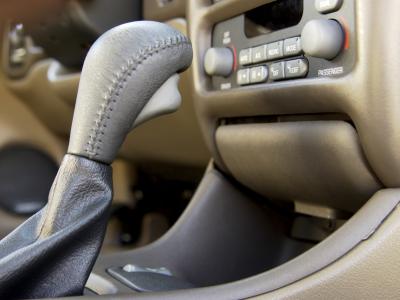It happens to everyone who owns a car. At some point in the life of the car, a mechanical breakdown will occur. And gear problems are probably the worst among the things that can go wrong. For one thing, they are expensive to repair, they require specific mechanical knowledge, and their repair involves special tools just to get access to the gears to fix the problem. In short, car gear problems don’t go away and they aren’t a typical fix-it-yourself car problem. However, you can save a lot of money and headaches knowing what gear problems are avoidable.

The car gears are the mechanical parts that translate the power produced by the car engine to the wheels. They are the fundamental parts that drive and turn the wheels when the transmission locks the gears into motion. The speed and strength translated to the wheels depend on which gear is being used.

The most familiar gear problem in manual transmission cars is actually not in the gears but in the clutch. For many the clutch is the core system that makes a manual car different from an automatic. Clutches normally last up to 80,000 miles, but they will break down quickly with improper use and this is part of the design. The clutch is supposed to fail first before the damage of shifting and changing gears translates to the gears themselves. Once the clutch materials are completely worn, the clutch will slip and won’t hold onto a given gear anymore. That in turn causes the gears to be unable to translate the engine power to the wheels.
Automatic transmissions don't have clutch issues because the car is designed to manage gear shifting without the driver's involvement. However, automatic car gears suffer other problems.

Gears are parts of metal that mesh and grind together. Without lubrication they would quickly crunch together and break under the stress and strain of the engine power. Particularly with automatic transmissions, automatic transmission fluid is critical for the gears to work properly. Common problems with fluids tend to be associated with leaks. The transmission fluid can find its way out of seals, gaskets and hose hookups.

Low transmission fluid level is another common gear problem. Insufficient fluid for the gears causes all sorts of mechanical issues. Fluid that is too low and/or old will tend to turn into sludge, and its viscosity benefits will be almost minimal. That in turn causes the gears to be unresponsive and slow to engage. Not enough fluid at all and the gears simply won’t engage.
Alternatively, a polar opposite problem for gears with fluid is when there is too much transmission fluid put into the car. Some folks think with extra fluid the gears will work better; this is a mistake. Instead, the extra fluid will start to froth in the gears, which causes it to start bubbling. The gear performance will degrade as a result.
Problems: Failure to MaintainMaintenance is a human problem that can be directly traced to causing car gear failure. Not sticking to regular maintenance schedules is the fastest way to cause a car to break down in a number of ways. Simple and inexpensive oil and fluid changes are the number one way to purge out dirt and sediment that can cause gears to grind or chip. But people hope to save money by driving a bit longer than recommended, and in turn cause significant wear and tear damage to their transmissions as a result.
In addition, maintenance checks allows your mechanic to find issues before they get bigger, especially with your transmission. And bigger problems result in a bigger costs associated with car repair. So it pays to practice preventative check-ups regularly.

Your car, like any machine, can last a very long time if taken care of. However, all machines require care and ongoing, regular monitoring of problems. If you don't provide regular oil and fluid changes, you are only shortchanging yourself in the end. And your car will suffer horribly as the transmission and gears wear down and get destroyed.
